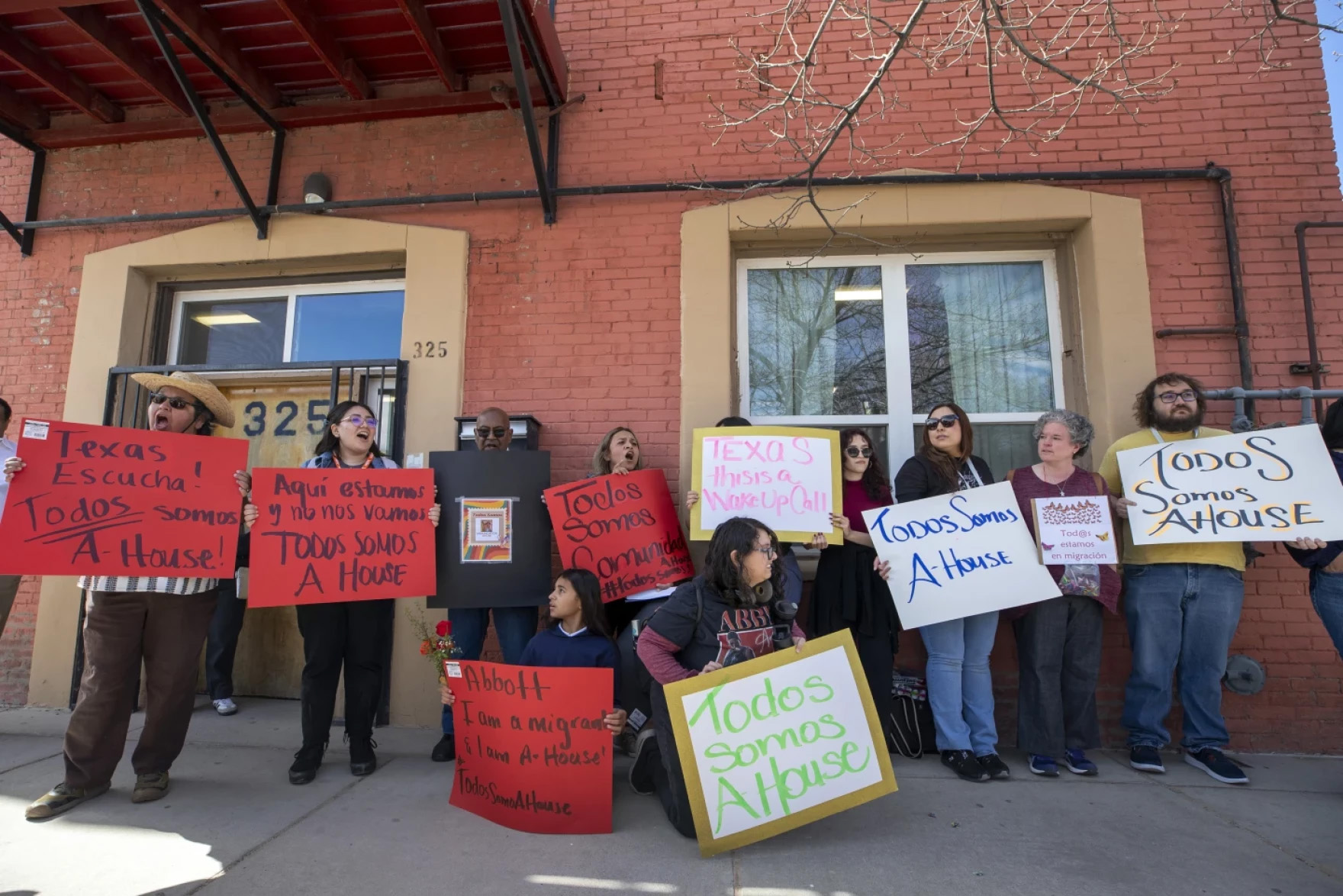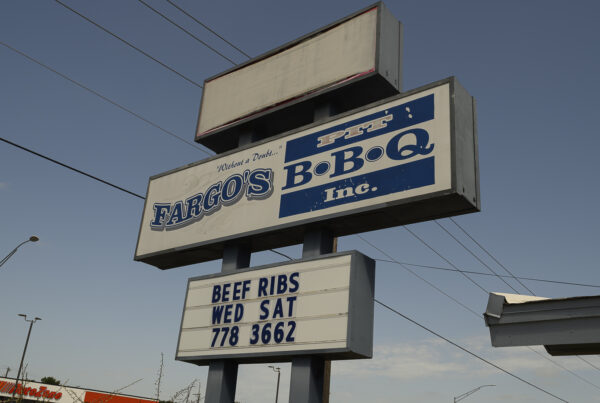From The Texas Newsroom:
In the leadup to Election Day, public radio stations across the state are exploring how Texans’ religious beliefs affect the way they’re thinking about voting in November – and the greater role of government in general. Want to share your story? Send us a voice memo.
Ruben Garcia isn’t a politician. He is, instead, a man of faith who for a half century has relied on the Catholic Church’s teachings to operate a shelter network for immigrants on the Texas-Mexico border.
Garcia opened Annunciation House in the late 1970s after he and a group of idealistic border residents sought a “greater sense of purpose,” as he once told the Christian Science Monitor. The shelter network, based in El Paso, serves asylum seekers and other immigrants who have crossed the border into Texas.
Though the network is rooted in the teachings of the Catholic Church, Garcia said that the goal of aiding migrants isn’t solely a Christian mission.
“You have to remember that – whether you’re Christian, whether you’re Jewish, whether you’re Muslim – in your fundamental belief documents, there is that sense of ‘I was a stranger, and you welcomed me,’” he told The Texas Newsroom.
That mission has landed Garcia and Annunciation House in the middle of an investigation launched by the state of Texas.
In February, Texas Attorney General Ken Paxton sued Annunciation House and sought to revoke its license to operate in Texas, alleging that documents the office reviewed “strongly suggest” the network was facilitating unauthorized immigration to the United States, harboring and smuggling aliens and operating a stash house.
The effort was later dismissed but Paxton asked the Texas Supreme Court to revive it.

Ruben Garcia of Annunciation House escorting a group of asylum seekers across an international bridge in El Paso in 2018. Julián Aguilar / The Texas Newsroom
The criticism lobbed at Garcia and other migrant aid groups, as well as immigrants themselves, often comes from conservative Christians who also wear their faith on their sleeves. Texas Republicans have cited faith when weighing in on political and cultural issues ranging from women’s health, gun ownership and what should be taught in public schools.
In 2023 Paxton said self-defense is a “God-given right” following the conviction of Daniel Perry, a U.S. Army sergeant who shot and killed an armed protester during Black Lives Matter demonstrations in Austin. (The gunman was later pardoned by Gov. Greg Abbott.)
More recently, state Rep. Matt Schaefer, R-Tyler, told a committee on public education in August that he believed Christianity played more of a role in shaping the United States than other major religions.
“I don’t think we should ever be ashamed of mentioning the name of Jesus in our curriculum or shying away from the role of Christianity in developing this country, developing Western civilization,” Schaefer said.
Garcia said the irony of statements like these isn’t lost on him. A person’s faith or beliefs can often be vilified by others if it translates into votes at the ballot box, he said.
“Unfortunately, a great deal of scripture is used and interpreted in terms of how that part of scripture is able to generate political votes,” he said.
When there is an influx of migrants entering the state, he said, it makes the criticism that much easier.
“When you see a lot of people who have crossed the border and they’re on the streets you can use those kinds of scenes to generate fear, to say, ‘Look, these are all bad people.’ And so that takes precedent over ‘I was a stranger, and you welcomed me.’ That part of Scripture doesn’t generate votes,” said Garcia.
To Rice University professor David Brockman, that rhetoric presents a clear paradox. But he said that some evangelicals can look to their own beliefs to justify the harsh rhetoric.
“They essentially [believe] that God likes walls,” said Brockman, a nonresident scholar for the Baker Institute’s Religion and Public Policy Program. “They point back to the secure walls being built around the city of Jerusalem and particularly in the books of Ezra and Nehemiah.”
Brockman added that some conservatives have a different interpretation of who should be tasked with aiding strangers to a particular land.
“Welcome the stranger, particularly from the Hebrew Bible, and the arguments about compassion and love for neighbor in the New Testament, many evangelicals interpret those as being mandates for individuals, not for states,” he said. “When Jesus is telling us to be compassionate, love the neighbor and so on, that’s what we as individuals are supposed to do.”














